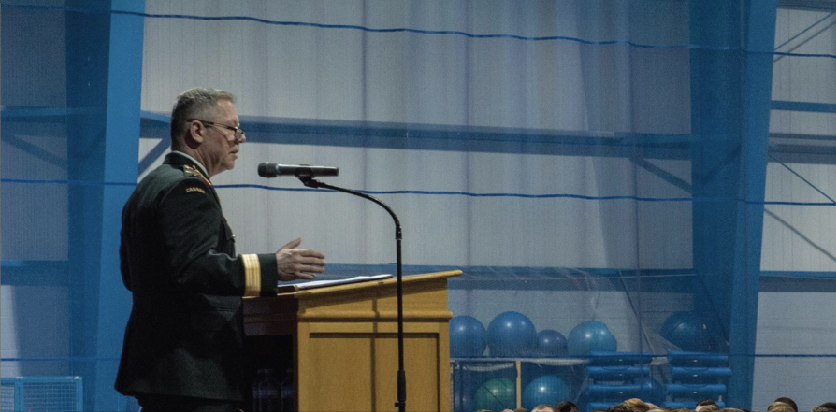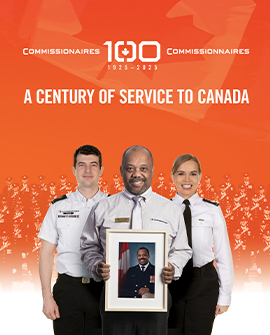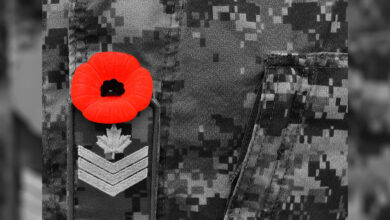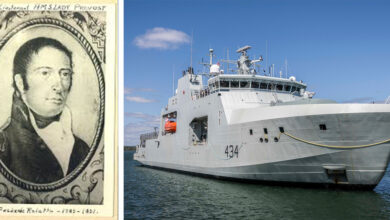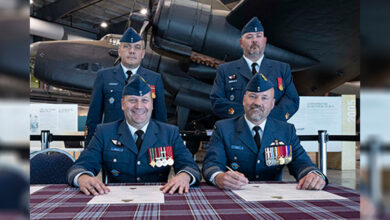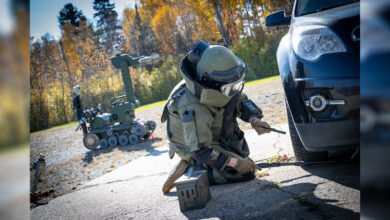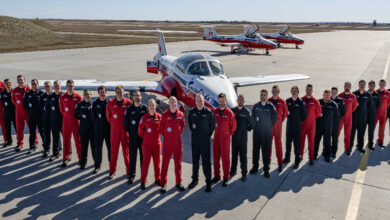Duty CallsUncategorized
Chief of the Defence Staff releases report on the Royal Military College of Canada
After an extensive report produced by a Special Staff Assistance Visit (SSAV) on the Royal Military College of Canada (RMCC) learning environment yielded 79 recommendations, the Chief of the Defence Staff (CDS), Gen. Jonathan Vance, visited the school on March 29 to announce a number of upcoming changes.
“As the Chief of the Defence Staff, I am responsible for ensuring that we produce the best possible professional leaders as commissioned Officers in the Canadian Armed Forces. The report has provided me with excellent insight into the challenges faced by the College students and staff in meeting this intent, and I am taking the necessary actions to set them up for success in the future,” said the CDS.
The report, which was conducted by interviewing more than 400 students, staff members and stakeholders, found that though the school was still viable in producing educated leaders for the Canadian Armed Forces (CAF), it is facing many significant challenges. Namely, the school’s Four Pillar programme, the standards that have been set in each pillar and their implementation; the selection of leadership role models for the Naval and Officer Cadets (N/OCdts) the academic governance framework and some of the infrastructure at RMC are all found lacking and in need of improvement.
The report indicates that these challenges have surfaced because of competing priorities and a general indifference on the part of the broader CAF.
The report also indicated negative stressors the N/OCdts are enduring while at the school because of inconsistent leadership exercises within the Training and Cadet Wings, unintended negative consequences in the implementation of defined leadership progression levels, the questionable quality and utility of the Professional Military Training programme, the coordination and time management of the Four Pillars programme, and the state of repair of some of the College infrastructure.
Through their interviews, the SSAV Team found that morale at the school was low amongst those N/OCdts. struggling with the Four Pillars programme. They also found morale was generally low within the support staff, who has battled understaffing and lack of resources.
The report also notes that portions of RMCC infrastructure needs improvement.
Based on the findings of the report, N/OCdts. can expect more regular and focused mentoring and coaching to prepare for their military career; better services such as medical, dental, administrative and food services; improvements made to staff levels at the college; and investment in infrastructure. The Canadian Defence Academy, the command responsible for the delivery of basic and higher education for the CAF, will now report directly to the CDS. Additionally, the leadership training model within the RMCC will be revamped for a better overall positive experience.
It is expected that some of these changes will be made before the next academic year while others will take longer to implement.
The SSAV Report on the Climate, Training Environment, Culture and ROTP Programme at the Royal Military College of Canada was commissioned on Aug. 30, 2016, by the CDS amidst concerns surrounding the learning environment at the RMCC.
The SSAV Team, led by former Deputy Chief of the Defence Staff, Vice-Admiral (Retired) Greg Maddison, comprised of several experienced and knowledgeable former and current CAF members. Dr. Phill Bates, a civilian and academic advisor and the RMCC Vice-Principal Academic, was also part of the team.
“The SSAV team spoke to nearly a quarter of the College’s Officer Cadets as well as military and academic staff and a variety of other stakeholders. We immediately recognized that there are a lot of good things happening at RMCC. However, there are challenges and opportunities that need to be addressed and I am confident we provided the CDS with frank and honest insight. I am encouraged that General Vance has accepted the recommendations and personally invested himself by taking immediate action in a number of areas, demonstrating the commitment needed to ensure a strong future for the College,” said VAdm. (ret’d) Maddison.


